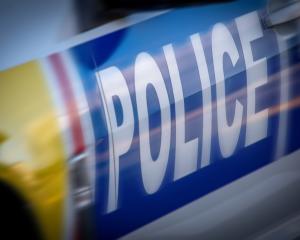
Twenty-two people died and 25 were injured, most of them seriously, after they were caught on the island off the Bay of Plenty when it erupted on December 9 in 2021, sending ash 3.6km into the air.
An inquest this afternoon heard an opening statement from Anna Adams, the counsel assisting families of deceased and the survivors.
Adams said many, including those who died, were in hospital for month and endured more surgeries than most of us experience in a lifetime.
She said the island was the most active in New Zealand and yet the country did not seem ready for the disaster.
"The eruption itself was a geological event that could not have been avoided. But perhaps the suffering of those impacted that day could have been avoided."
Adams said many families consider that visitors to the island should not have been permitted at all.
They asked the coroner to set out a complete account of what occurred on the island the day it erupted, including where everyone was, what they were wearing and how they were taken off the island.
Adams noted that families and survivors were concerned there was a lack of urgency necessary for a mass casualty event.
"Thirty-nine people were rescued from the island on the day of the eruption, entirely by civilian boats and helicopters."
Eight people were left behind, presumed deceased.
However, she said that generally, the bereaved families and survivors recognised those who came to help on the day and were grateful for the care they received.
Opening statements were also given by counsel for police, Health New Zealand, Auckland Rescue Helicopter Trust, the National Emergency Management Agency and Whakatane District Council.
The inquest, which has been delayed several years due to criminal proceedings related to the events, was formally opened with a prayer and mihi from local iwi, Ngati Awa.
It will move to Auckland from Monday, after Coroner Marcus Elliott made the decision to hear evidence at Newmarket following submissions from families and interested parties.
Elliott said over its history, the island had sustained life and taken life. He acknowledged the great deal of human kindness on display on after the eruption on December 9 in 2019.
Adams presented an acknowledgement to those who died and who survived. The moving tribute included details of each, their character, and how much they were missed by their families.
It was followed by a group statement from survivors and family members read by police-family liaison officer Constable Leanne Fairbairn.
The statement said it was hard to overstate the emotional burden the eruption had placed on those involved.
"Every bereaved family member and survivor has explained that their lives changed forever following the eruption."
The group statement was followed by personal statements from survivors and their family members.
Identifying the people making each statement is not allowed by the court.
At least one survivor said they should never have been on the island.
Others mentioned the pain of waiting for news of their loved ones, especially as the bodies of some victims remained on the island for several days or were never recovered.
In several personal statements, it was suggested the island should be handed over to the government and never used again for tourism.
• RNZ can only report on the inquest when court adjourns twice a day.













